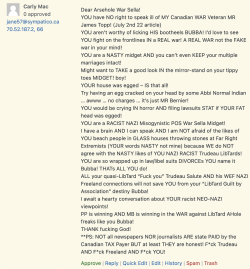My latest: the calm at the centre
There is nothing stable in the world. Uproar is your only music.
Uproar: so said the English poet John Keats in a letter to his brothers, in January 1818. George III was the king in that year, and the world was beset by slavery, cholera, and wars in Europe and the West. It was a time of great instability and turmoil and chaos.
In that uncertain time, George III ruled for just shy of sixty years. Only Queens Victoria and Elizabeth II would go on to be on the throne that long – Victoria, 63 years, Elizabeth, 70 years.
Like this writer’s favourite poet, Theodore Roethke, Keats was a great observer of the natural world. From that, he acquired the view that life, in the main, was mostly about hardship and suffering. People, Keats wrote, were perpetually “straining at particles of light in the midst of a great darkness.” Keats, perhaps the greatest English poet, knew about that darkness: he died horribly, from tuberculosis, at the age of 25.
What he wrote to his brothers George and Thomas was as true now as it was then. In 1818, as in 2022, uproar is ubiquitous. It cannot be missed.
As in 1818, war is again raging. There is Russia’s vicious and unholy war against Ukraine, near the centre of Europe. After seven months, at least 40,000 Ukrainians have been killed or wounded; as many as 43,000 Russian soldiers have been killed, too.
In Africa, in places like Sudan, Somalia, Sudan, Ethiopia, Nigeria and the “Democratic Republic” of Congo, millions have been displaced by war and drought and Ebola and famine, and millions more are starving. Elsewhere, in places like Myanmar, there is genocide, with tens of thousands murdered and raped.
Globally, Covid-19 persists, despite the serial fantasies of politicians bent on re-election, and fantasists bent on self-destruction. To date, the virus has killed at least seven million people around the planet – but the real figure is perhaps twice that, because governments lack the means or the will to tell the truth about the full extent of the death toll.
In Canada, Covid has killed close to 50,000 of us – but the real figure is known to be much higher. And that lesser figure, alone, is already thousands more Canadians than those who were killed in World War II.
Such misery and death – such uproar, as John Keats called it – has always been a constant for humankind. The uproar upends lives, and leaves us feeling like there is no respite, no relief from it all.
Except, except: her. She was.
She was born Elizabeth Alexandra Mary Windsor. More formally, she would become known as “Elizabeth II, by the Grace of God, of the United Kingdom of Great Britain and Northern Ireland and of her other realms and territories Queen, Head of the Commonwealth, Defender of the Faith.”
It was not that cumbersome title, of course, for which she became known. She became known – and admired, and loved – because she somehow provided an antidote to Keats’ uproar. She was stability in an era of instability. She was certainty when too much remains uncertain. She was steadiness when the world was anything but.
Elizabeth was not elected to her role, which (understandably) rankled many. She was born to it. But that, in an odd way, placed her above the grubbiness of re-election and phoney political promises. She was born to be rich and powerful, true. And she could have revelled in that, and been disinterested in the everyday concerns of everyday people – as some of her children have been.
But she clearly regarded her role as one of duty and service, and she provided both for seven decades, without complaint. Supporting charity, promoting good causes, urging on democracy and decency. Most of all, however, she was the antidote to the perpetual uproar.
A few years ago, Ontario Premier Dalton McGuinty invited this writer and others to meet her, at the opening of a cavernous, metal-clad film studio in Toronto’s East end. The heat was Hellish, that day, and all of us – dressed in our finest outfits – were bathed in sweat. It was almost unbearable.
Her Majesty was tiny, I recall. She wore a hat and held her purse close to her, and there was a faint smile on her face, which was a lovely face. As she moved away from me and my friend Bob Richardson, I whispered to him that she appeared completely unaffected by the heat.
“She is the calm,” I said to Bob, “at the centre of every storm.”
And she was.
And we will miss her for it.
Flower power
Sunflowers obsess me lately. Had to get this one out. Joey didn’t care. pic.twitter.com/yiYNvLWHLK
— Warren Kinsella (@kinsellawarren) September 9, 2022
RIP Her Majesty
What a truly extraordinary and exceptional human being.
This is one of those days we all remember where we were when we heard.

My latest: should he stay or should he go?
Okay, you’re Justin Trudeau. Just pretend you are.
We know, we know: you’d rather not. If we’re all playing dress-up games – one of Justin Trudeau’s favourite pastimes, as is well-known – you’d rather play the role of someone else. Someone less unpopular, say.
Because, God knows, Justin Pierre James Trudeau, PC, MP, twenty-third Prime Minister of All of Canada, is pretty damn unpopular. Even that friendliest of friendly Ottawa opinion-sampler firms, Abacus, says so.
Said Abacus, a few days back: “Public feelings about Prime Minister Trudeau had been deteriorating through our surveying over the Summer…The Prime Minister’s negatives still stand at 50 per cent – the second highest negative reading we’ve seen during his time in politics.”
The reasons are myriad and multiple, because – in politics – it’s never just one thing that kills you. It’s an accumulation of things, over a long period of time. Big political graves are dug with tiny shovels, this writer always likes to say.
In Trudeau’s case, there’s no shortage of things about which to dislike. There’s the WE scandal, and the Aga Khan one. There’s his obstruction of justice in the LavScam thing – which would’ve gotten him impeached, had we been like the Americans.
There was the egregiously racist blackface incidents – incidents, plural, because Trudeau did it so many times, even he wasn’t sure how many. There’s was the groping of the reporter at the beer festival in BC, which constitutes sexual assault, as defined in no less than the Criminal Code of Canada.
Any of those – obstruction of justice, blackface, groping – were disqualifying. Had Justin Trudeau been a garden-variety aspiring Liberal candidate, had he been a regular person, those things would’ve prevented him from being “green lit” to be an actual candidate.
But he isn’t a regular person. He’s a Trudeau, a millionaire, and a charter member of the lucky sperm club. He breathes a different, rarefied air. He orbits in a different stratosphere than the rest of us mere mortals do.
But we mere mortals want him gone for the most politically-fatal wound of all: we’re sick of his face. We’re tired of him, even those of us who voted for him before. We want him gone.
Few Liberals know where he hangs out, these days. Fewer still are consulted by him. If you’re a Liberal MP, you’ll be lucky to be granted a minutes-long audience with him once every year.
So, as Justin Trudeau lingers somewhere, pondering what to do – pondering whether to stay or to go, per the Clash – there are pros and cons.
The cons: Trudeau could lose the next election. The Conservatives are about to give Pierre Poilievre 110 per cent of the vote. Poilievre could get a bit of bump. The fresh face and all that. Stranger things have happened.
Another con: there’s no issue to manipulate, there’s no pretext, to justify an early election call. Trudeau used Covid in 2021, and it very nearly blew up in his face. What could he use this time?
This con, too: the polls – including the aforementioned Abacus – continue to show Trudeau’s Liberals and the Conservatives where they have been for years: tied. If an election was held now, the Grits would win – but it’d be another minority. No change.
But there are pros, too, associated with staying and fighting. Chief among them is Pierre Poilievre himself. The Ottawa-area MP is hard to like. And his Bitcoin fetish – and his WEF conspiracy theories, and his links to far-Right convoy types, and the civil war he’s fostered within his own party – are big, big liabilities. For the Liberal war room, it’d be a target-rich environment.
Another pro: the Tories are again – again! – underestimating Trudeau. After being beaten by him three elections in a row, you’d think they’d learn. But, once again, they have underestimated Trudeau’s main strength: his ability to fight. He loves a good fight. And he rarely loses.
Pros, cons. Negatives, positives. As he sits somewhere, eyeballing his phone, alternating between poll numbers and pictures of Himself on Instagram, Justin Trudeau isn’t letting on what he’ll do. Stay and fight? Shrug and leave?
So: if you were Justin Trudeau, what would you do?
Home
I love living here. #PEC pic.twitter.com/0VxXnptz3f
— Warren Kinsella (@kinsellawarren) September 7, 2022
Dear Maxine Bernier, Mark Bourrie and Andre Marin
This is your periodic reminder that we not only defeated Maxime Bernier and his lawyers Andre Marin and Mark Bourrie in court – but also this: Bernier was forced to pay us $132,000 because they lost so decisively. #cdnpoli https://t.co/PCaT0sgwge
— Warren Kinsella (@kinsellawarren) September 6, 2022
KINSELLACAST 226: Lilley, Mraz, Kheiriddin on politics – it’s back! Plus: Wire!
We get letters: she sure doesn’t like “midgets”

